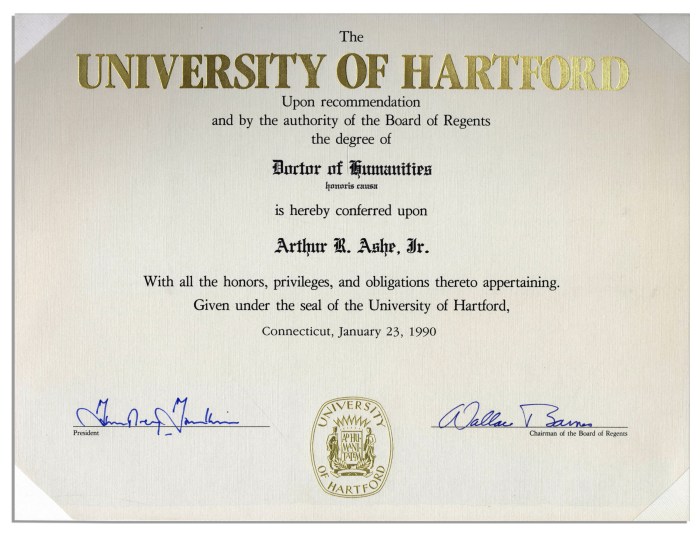In the ever-evolving realm of higher education, the allure of university degree buy has become a growing concern. As the demand for skilled professionals intensifies, individuals seek alternative pathways to attain coveted credentials. This article delves into the intricacies of university degree buy, exploring the methods, consequences, and ethical implications associated with this controversial practice.
We will shed light on the various methods employed to purchase fake university degrees, exposing the deceptive tactics used by unscrupulous actors. We will also examine the severe consequences that can arise from such actions, including legal penalties and reputational damage. Furthermore, we will discuss legitimate degree alternatives, exploring non-traditional pathways to higher education that offer recognized and valuable credentials.
University Degree Fraud
University degree fraud involves the purchase of fake or counterfeit university degrees, diplomas, or certificates. This practice is illegal and can have serious consequences for individuals who engage in it.
Methods of Purchasing Fake University Degrees
There are several methods used to purchase fake university degrees. Some of the most common include:
- Purchasing degrees from diploma mills
- Buying degrees from individuals who claim to have connections to universities
- Using online services that offer fake degrees
Consequences of Purchasing a Fake University Degree
The consequences of purchasing a fake university degree can be severe. Some of the potential consequences include:
- Loss of job or career opportunities
- Criminal charges
- Damage to reputation
Examples of Cases Where Individuals Have Been Caught Purchasing Fake University Degrees
There have been numerous cases where individuals have been caught purchasing fake university degrees. Some of the most notable cases include:
- In 2013, a former CEO of a Fortune 500 company was sentenced to prison for purchasing a fake MBA degree.
- In 2015, a doctor was fired from his job after it was discovered that he had purchased a fake medical degree.
- In 2017, a lawyer was disbarred after it was revealed that he had purchased a fake law degree.
Accreditation and Recognition

Accreditation plays a crucial role in establishing the credibility and quality of university degrees. It is a formal recognition that an institution meets specific standards of educational excellence, ensuring that its graduates possess the necessary knowledge, skills, and competencies to succeed in their chosen fields.
There are different types of accreditation, each with its own implications. Institutional accreditation evaluates the overall quality of an institution, while program accreditation focuses on specific academic programs. Regional accreditation is the most prestigious and widely recognized form of accreditation in the United States, and is typically granted by one of six regional accrediting agencies.
Types of Accreditation
- Institutional accreditation: Assesses the overall quality of an institution, including its faculty, curriculum, and resources.
- Program accreditation: Evaluates specific academic programs, such as business, education, or engineering.
- Regional accreditation: The most prestigious and widely recognized form of accreditation in the United States, granted by regional accrediting agencies.
- National accreditation: Granted by national accrediting agencies and recognized by the U.S. Department of Education.
Implications of Accreditation
- Credibility and Recognition: Accredited degrees are recognized by employers, graduate schools, and professional organizations, enhancing the value and credibility of a graduate’s qualifications.
- Quality Assurance: Accreditation ensures that institutions meet established standards of educational quality, providing students with a reliable measure of the institution’s academic rigor and commitment to excellence.
- Student Benefits: Accredited institutions often offer access to financial aid, scholarships, and other student support services, which can enhance the overall student experience.
Comparison of Accredited and Non-Accredited Universities
| Characteristic | Accredited Universities | Non-Accredited Universities |
|---|---|---|
| Quality Assurance | Meet established standards of educational quality | May not meet recognized standards |
| Recognition | Degrees recognized by employers, graduate schools, and professional organizations | Degrees may not be recognized or accepted |
| Financial Aid | Eligible for federal and state financial aid | May not be eligible for financial aid |
| Student Services | Offer access to financial aid, scholarships, and other student support services | May not offer comprehensive student support services |
Employer Perspectives
In the modern job market, university degrees hold significant weight in the eyes of employers. However, the rise of online and alternative methods of obtaining degrees has raised questions about their perceived value and the perspectives of employers on such credentials.
Employers generally scrutinize candidates with non-traditional degrees more closely, seeking evidence of equivalent knowledge, skills, and experience. They may consider factors such as the reputation of the institution, the rigor of the program, and the candidate’s ability to demonstrate proficiency in the field.
Evaluating Candidates with Non-Traditional Degrees
- Employers assess the reputation of the institution that issued the degree, considering its academic standing, accreditation, and industry recognition.
- The rigor of the program is examined, including the coursework, assignments, and assessments completed by the candidate.
- Employers evaluate the candidate’s ability to demonstrate proficiency in the field through work experience, projects, and references.
Potential Impact of Purchasing a Fake University Degree
Purchasing a fake university degree is strongly discouraged as it undermines the integrity of education and job qualifications. Employers can detect fraudulent credentials through verification processes and background checks, which can lead to severe consequences.
- Loss of job opportunities and credibility
- Legal repercussions and fines
- Damage to personal and professional reputation
Ethical Considerations
Purchasing a fake university degree raises serious ethical concerns, as it undermines the integrity of education and has far-reaching consequences for individuals, institutions, and society.
For individuals, using a fake degree is a form of fraud and deception. It can damage their reputation, hinder career advancement, and lead to legal repercussions if discovered.
Harm to Institutions
- Diminishes the value and credibility of genuine degrees, eroding public trust in higher education.
- Creates an unfair advantage for those with fake degrees, undermining the meritocratic principles of education.
Harm to Society
- Devalues the importance of education and undermines the social value placed on knowledge and skills.
- Can lead to a decline in the quality of services provided by professionals who have obtained fake degrees, potentially putting the public at risk.
Ethical dilemmas arise when individuals consider purchasing a fake degree. They may feel pressured by societal expectations or a desire for financial gain. However, it is crucial to weigh these factors against the ethical implications and potential consequences.
Query Resolution
Is it legal to purchase a fake university degree?
No, purchasing a fake university degree is illegal in most countries and can result in severe legal consequences.
What are the consequences of purchasing a fake university degree?
Consequences can include legal penalties, job loss, reputational damage, and difficulty obtaining future employment.
Are there legitimate alternatives to university degree buy?
Yes, there are many legitimate alternative pathways to higher education, such as online degree programs, part-time study, and competency-based education.
How do employers view university degrees purchased online or through alternative methods?
Employers generally value degrees from accredited institutions, regardless of the delivery method. However, they may consider additional factors such as the reputation of the program and the individual’s skills and experience.





